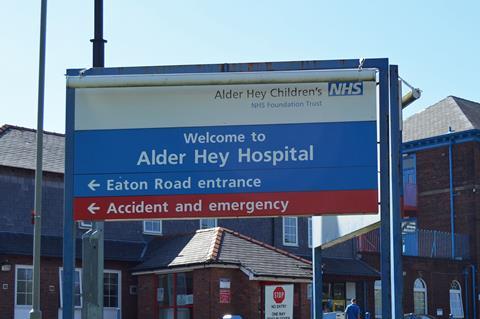A silk who helped secure one of the biggest ever clinical negligence settlements in England has criticised defence lawyers for prolonging the case almost to trial. Alder Hey Children’s NHS Foundation Trust agreed to pay £27.3m in total to a former patient who suffered catastrophic injuries as a toddler 12 years ago.
The victim had suffered two focal seizures but was sent home from hospital and, despite re-attendance, was not diagnosed with the virus HSV for five days. Now 13, he has what the court described as profound impairments and intractable epilepsy, requiring two carers at all times and specialist modified accommodation, therapies and equipment.
Proceedings were commenced in 2018 and the defendant admitted breach of duty and, subject to one contested point, causation of loss and damage. A 10-day trial on quantum was listed for this month until the parties arrived at settlement just two working days before its start date.
The boy, who is subject to an anonymity order, was represented by Bill Braithwaite QC and Chris Barnes from Exchange Chambers. Following settlement, Braithwaite said that while the family was relieved to have been spared a trial on quantum, the delay in settlement was ‘unacceptable’.
‘There was ample opportunity for NHS Resolution, which is supposed to be keen on resolving claims, to grasp the nettle and admit that Alder Hey’s repeated negligence had caused catastrophic injury to an innocent baby and his family,’ he said. ‘The pressure on parents of children with severe brain injury, particularly as the child gets older, larger and more difficult to manage, is immense, and in this case it went on for years.’

The settlement consists of a £7.75m lump sum and index-linked periodical payments to be made throughout the claimant’s life (£330,000 a year until he is 19 and then £337,500 per year).
In a statement on the case, an NHS Resolution spokesperson said: ‘Our aim is to reach the right decision as quickly as we can. We never intend to cause any harmed patient or their families’ distress or anxiety through the claims process.
‘This is a tragic case where the family have provided substantial support to their child. The case was complex and required substantial expert evidence to assess the child’s ongoing needs and for the parties to reach agreement on the settlement. We hope the settlement provides the family with certainty for the future.’
In this year’s annual report, NHS Resolution, which acts for trusts in clinical negligence cases, said it had ‘tried ever harder’ to settle claims without going to court and resolved a record number of claims out of court in the previous year. The organisation also cited a ‘spirit of co-operation’ with claimant solicitors in response to the pandemic.
This article is now closed for comment.



























13 Readers' comments